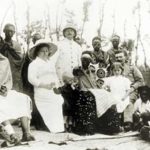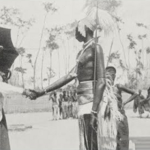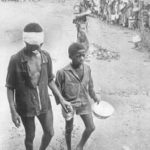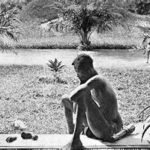The Changing- Status Of Corporate KIN GROUPS
Whenreflecting on the political changes they (or their parents) had observed during the last 100 years, elderly Kinyagans consulted for this research would often stress the autonomy, status, and material well-being enjoyed by
their lineages in the past. But from the time of Rwabugiri, they say, important changes occurred in the status of kin groups and their relations with political authorities. What these people witnessed was a growth in the power and scope of the Rwandan state, a process manifesting itself at the local level in efforts by chiefs to divide and weaken preexisting corporate groups -in this case, lineages. Erosion of the autonomy, unity, and size of local lineages facilitated the acquisition of greater control and prerogatives by the chiefs. This augmentation of chiefly power, a form of increased state penetration at the local level, interacted with the transformations in clientship (noted above) and fostered new forms of social identity among those affected.
Two major types of kinship groups, the lineage and the clan, are important in Kinyaga today, as in the past. A lineage (umuryango) in the broadest sense constitutes the group of all those who can trace agnatic ties to a common ancestor, usually three to six generations in the past, and who often bear a common name, normally derived from the name of the ancestor recognized as founder of the group. Thus, the descendants of Seekadegede are referred to as the Abadegede; the descendants of Seemutega, the Abatega, and so on. In Kinyaga, lineages of today are frequently named after the first person of the lineage to have come to the region.
Over time, the size of different lineages could vary considerably, depending on the social context and the time depth by winch lineage
members count back to their corporate eponym. Where memories have been preserved of ancestors several generations back, the group could be, theoretically, quite large. Even where direct agnatic ties cannot be traced today, people bearing a common lineage name and postulating descent from a common ancestor will recognize a common identity. In the past, however, new lineages were continually being formed through scission. Moreover, the effective (functional) size of lineages tended to diminish over time as a result of increased central govemment penetration. Despite this change, in Kinyaga the term umuryango is still used to designate the smaller functional unit, as well as the larger grouping defined in terms of descent and exogamy.
Lineages in Rwanda are grouped into clans (ubwoko) on the basis of putative agnatic descent from an eponymous ancestor. However, unlike lineages, clans are more a social category than a corporate descent group. Members of a clan cannot normally trace their descent links to each other and clans as such have no leader, no political roles, and no functions apart from social identity. Each clan includes members from all three ethnic groups represented in Rwanda, a fact that bas proved problematic for those who view social distinctions in Rwanda as rigid and unchanging, resembling castes.
In addition,to umuryango and ubwoko, a further classification of individuals based on kinship is the ikinege, described by Kinyagans as a person “without any family” (an undesirable status under most circumstances. Such a person is often a recent immigrant to the area where he lives, or someone whose kin have disappeared through death or emigration.
https://uk.amateka.net/the-changing-status-of-corporate-kin-groups/https://uk.amateka.net/wp-content/uploads/2020/06/batutsi.pnghttps://uk.amateka.net/wp-content/uploads/2020/06/batutsi-150x150.pngChanges and ColonialismWhenreflecting on the political changes they (or their parents) had observed during the last 100 years, elderly Kinyagans consulted for this research would often stress the autonomy, status, and material well-being enjoyed by their lineages in the past. But from the time of Rwabugiri, they say, important changes occurred in...BarataBarata rpierre@ikaze.netAdministratorAMATEKA | HISTORY OF RWANDA




